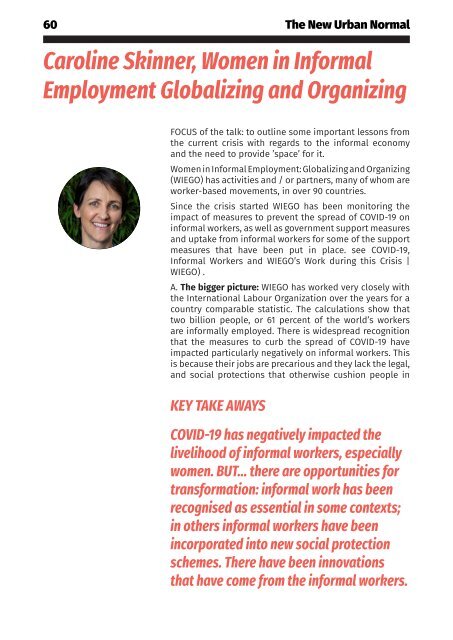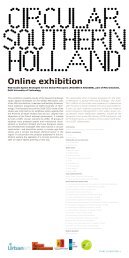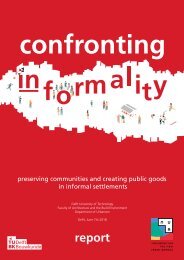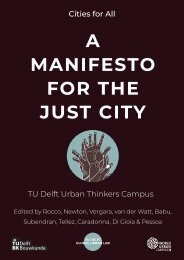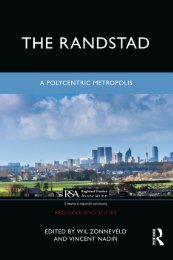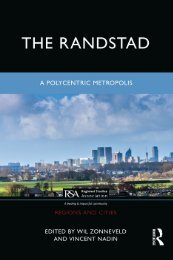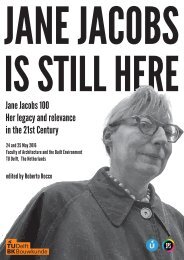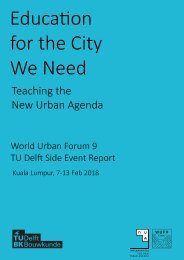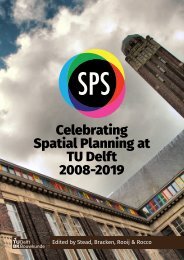The New Urban Normal Urban Sustainability and Resilience Post COVID-19
The COVID19 pandemic has exposed several systemic failures and injustices in the way cities are planned and designed around the world. It has also exposed the failings due to lack of planning in most places in the Global South. Careful, inclusive and participatory spatial planning is thought to greatly strengthen the capacity of societies to withstand systemic shocks, as testified by the New Urban Agenda (2016), the Pact of Amsterdam (2016) and the New Leipzig Charter (2020). Integrated affordable housing, for instance, has come to the top of the agenda once again, now propelled by the realisation that slum dwellers (a staggering 1 billion people around the world) and homeless people are particularly vulnerable to health crises and other societal shocks. The pandemic has been saluted as an opportunity to implement far-reaching transformation of our societies towards sustainability and justice, but little signs of systemic change have actually surfaced. For example, several cities around the world claim they will overhaul public space, take space from private cars, and invest more on green spaces, bicycle paths and quality public mobility. But little has been said about addressing the structural causes of inequality. The champions of the circular economy salute the pandemic as a new dawn for more human-centred capitalism, for the abandonment of exploitation and unfair distribution, and a world where workers can find decent housing, health, work and leisure. But what is actually happening on the ground?
The COVID19 pandemic has exposed several systemic
failures and injustices in the way cities are planned and
designed around the world. It has also exposed the failings
due to lack of planning in most places in the Global South.
Careful, inclusive and participatory spatial planning is
thought to greatly strengthen the capacity of societies to
withstand systemic shocks, as testified by the New Urban
Agenda (2016), the Pact of Amsterdam (2016) and the New
Leipzig Charter (2020). Integrated affordable housing, for
instance, has come to the top of the agenda once again,
now propelled by the realisation that slum dwellers (a
staggering 1 billion people around the world) and homeless
people are particularly vulnerable to health crises and
other societal shocks.
The pandemic has been saluted as an opportunity to
implement far-reaching transformation of our societies
towards sustainability and justice, but little signs of systemic
change have actually surfaced. For example, several cities
around the world claim they will overhaul public space,
take space from private cars, and invest more on green
spaces, bicycle paths and quality public mobility. But little
has been said about addressing the structural causes of
inequality. The champions of the circular economy salute
the pandemic as a new dawn for more human-centred
capitalism, for the abandonment of exploitation and unfair
distribution, and a world where workers can find decent
housing, health, work and leisure. But what is actually
happening on the ground?
Create successful ePaper yourself
Turn your PDF publications into a flip-book with our unique Google optimized e-Paper software.
60 <strong>The</strong> <strong>New</strong> <strong>Urban</strong> <strong>Normal</strong><br />
Caroline Skinner, Women in Informal<br />
Employment Globalizing <strong>and</strong> Organizing<br />
FOCUS of the talk: to outline some important lessons from<br />
the current crisis with regards to the informal economy<br />
<strong>and</strong> the need to provide ’space’ for it.<br />
Women in Informal Employment: Globalizing <strong>and</strong> Organizing<br />
(WIEGO) has activities <strong>and</strong> / or partners, many of whom are<br />
worker-based movements, in over 90 countries.<br />
Since the crisis started WIEGO has been monitoring the<br />
impact of measures to prevent the spread of <strong>COVID</strong>-<strong>19</strong> on<br />
informal workers, as well as government support measures<br />
<strong>and</strong> uptake from informal workers for some of the support<br />
measures that have been put in place. see <strong>COVID</strong>-<strong>19</strong>,<br />
Informal Workers <strong>and</strong> WIEGO’s Work during this Crisis |<br />
WIEGO) .<br />
A. <strong>The</strong> bigger picture: WIEGO has worked very closely with<br />
the International Labour Organization over the years for a<br />
country comparable statistic. <strong>The</strong> calculations show that<br />
two billion people, or 61 percent of the world’s workers<br />
are informally employed. <strong>The</strong>re is widespread recognition<br />
that the measures to curb the spread of <strong>COVID</strong>-<strong>19</strong> have<br />
impacted particularly negatively on informal workers. This<br />
is because their jobs are precarious <strong>and</strong> they lack the legal,<br />
<strong>and</strong> social protections that otherwise cushion people in<br />
KEY TAKE AWAYS<br />
<strong>COVID</strong>-<strong>19</strong> has negatively impacted the<br />
livelihood of informal workers, especially<br />
women. BUT… there are opportunities for<br />
transformation: informal work has been<br />
recognised as essential in some contexts;<br />
in others informal workers have been<br />
incorporated into new social protection<br />
schemes. <strong>The</strong>re have been innovations<br />
that have come from the informal workers.


